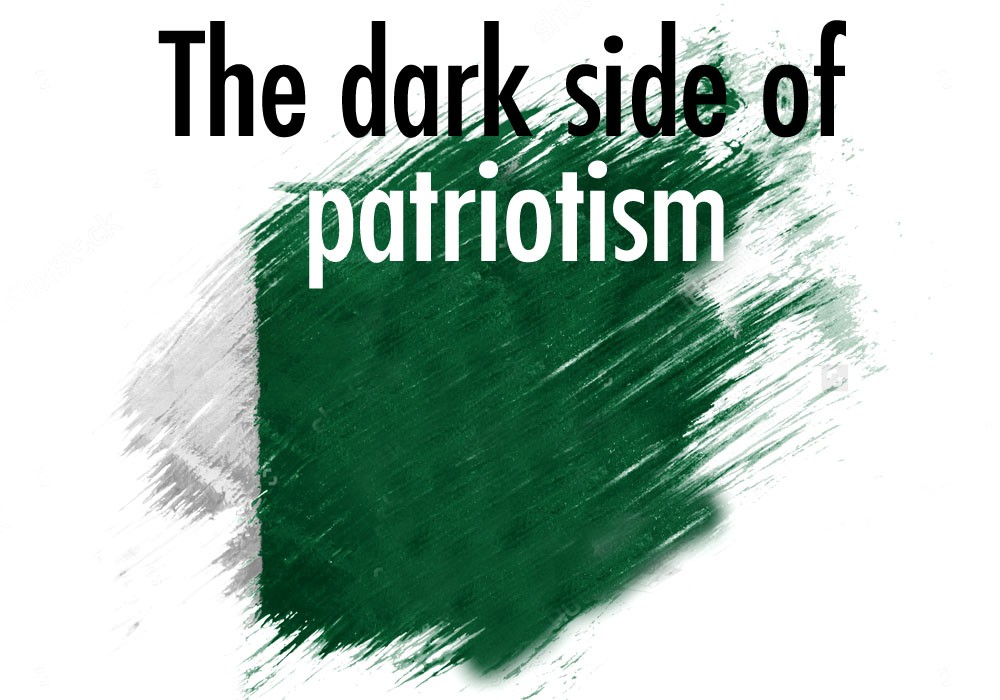
Looking at why has there been an overdose of patriotism in this country in recent times

Why must we puncture the idea at a time when Pakistan is beset with so many problems, terrorism being the most potent of all? Does it not need more of patriotism than less? What dark side are we talking about?
Pertinent questions these all, they must be answered. Truth is there has been an overdose of patriotism in this country in recent days, even if there never was any dearth of it in the 69 years of its existence. When pitched against objective realities, sometimes this excessive reliance on state-propelled nationalism seems a part of the problem than the solution. Seen against the backdrop of Quetta carnage of August 8, the Independence Day celebrations a few days later seem more sham than an expression of resilience on the people’s part.
Before the celebrations began, there was castigation of Pashtun leader from Balochistan, Mehmood Khan Achakzai’s speech in the parliament from all familiar quarters, no less from the interior minister himself. In essence, what Achakzai had said was that the Pakistani state must protect its citizens against acts of terrorism and must be held to account if it does not. Instead of passing on the blame to RAW and other ‘enemies’ of China Pakistan Economic Corridor (CPEC), the intelligence agencies must answer for their own failure, he had said.
This was valid criticism, shared by all thinking Pakistanis at the time. Instead, the leader from Balochistan was isolated and cornered, almost charged with treason. And that’s where the problem lies. We have a long history of slapping charges of ‘treason’, ‘sedition’, ‘traitors’, ‘anti-state’, ‘anti-national’ against the people we should have celebrated, particularly those from the smaller or marginalised nationalities. People who were declared pariahs for their differing views were often proved right later, and yet we did not learn.
Read also: The dark side of patriotism
People in this country have been made to prefer just one version of truth while only one institution has retained the monopoly to define ‘national interest’ and ‘national security’. The unfortunate part is that the very instruments of democracy -- the political parties and the media -- fail to let it flourish by allowing more space for competing ideas. When the crunch comes, they bend over backwards to prove themselves more patriotic than the state. From Rawalpindi Conspiracy to Hyderabad Conspiracy to the recent Memogate case, the list is long.
This overdose of patriotism makes us look big only in comparison -- once we have made all others look small, wicked and conspiratorial. It starts with textbooks and quite successfully so. But it ends up making the citizens both patriotic and bigoted at the same time. The idea is to make the people confident by telling them how the world is out against their greatness — but ends up making them more insecure.
This is the dark side of patriotism that we are talking about in our Special Report today, a patriotism that is counter-productive both for the state and the society.